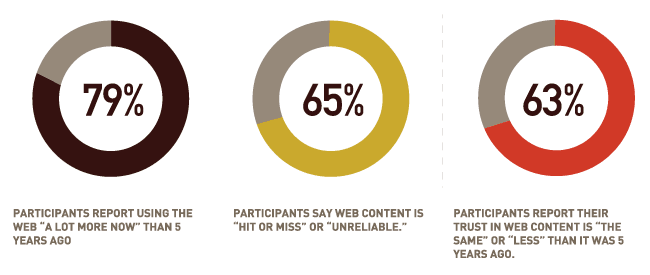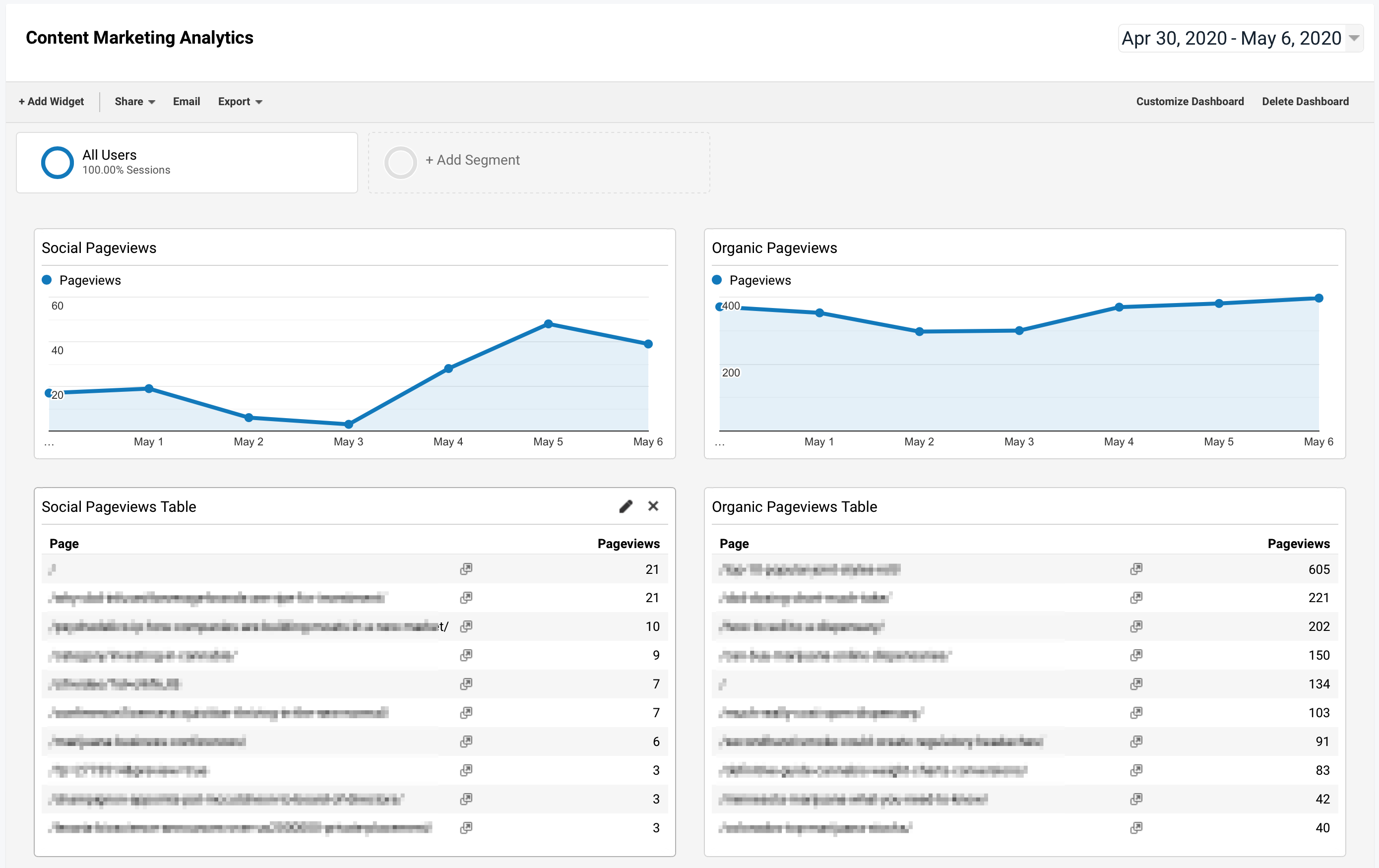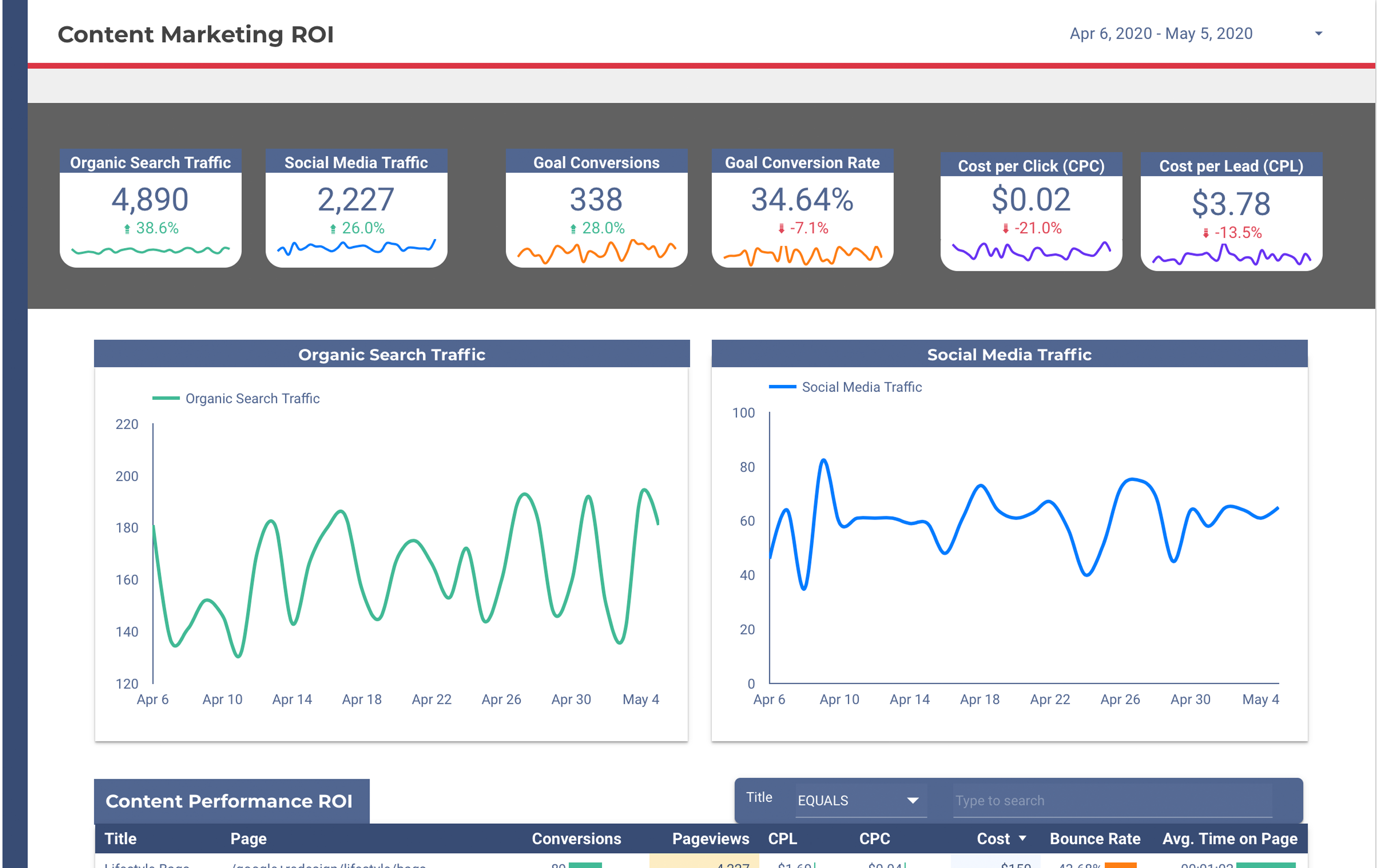How to Grade Your Content
Learn how to assess the quality of your content and ensure that you're content marketing efforts are paying off.
Learn how to assess the quality of your content and ensure that you're content marketing efforts are paying off.
We all know great content when we see it.
A Google search for an answer may have turned up just what you needed in the moment or perhaps you visit a favorite blog that hits the mark every single time with their content.
Your own content is a different story.
You may have built marketing personas and run an article past a few colleagues, but it's hard to put yourself in the shoes of a Google searcher or potential customer. You may have hired a writer and you don't know how to judge their work. Or, maybe it's your own writing and you're just too close to it.
Let's take a look at some objective data points that you can use to grade your content, as well as how you can use these grades to improve your content marketing efforts.
Many businesses judge their content marketing success by web traffic. If it generates tens of thousands of page views, it must be a sure-fire road to success, right?
Wrong. It's not 1999. Millions of page views won't do you any good if they aren't converting into leads!
We've all clicked on disappointing Google search results. While it's technical a page view, there's no way that you're going to buy anything from them. In fact, you might even resent them for wasting your time. That's a net negative!

Real success is surprising a visitor with real insights that answer their questions while encouraging them to take some action that creates a relationship with them. They may not sign up or buy on the spot, but they trust and may even share the content with a friend or colleague.
Search engines are getting better at recognizing high-quality content, but there's still a lot of publishers out there putting out "fluff" content. Don't become one of them!
Quality is both qualitative and quantitative.
For example, suppose that you're looking for a book about investing in the stock market.
You may pick up a book that's written in a way that hooks you in and keeps you engaged with an approachable and entertaining writing style. The writing style is a qualitative measure that speaks to the author's ability to convey information.
Or, you may go to Amazon.com and look for a book that has the best reviews or look at a financial website that ranks different books on the topic. The ratings are a quantitive measure that provides you with an indicator of quality.
There are pros and cons to each approach. Qualitative measures are harder to quantify (since they're not numeric) but may provide a better indicator of quality, while quantitative measures can be quickly analyzed and may be more universal.
There are a handful of qualitative attributes that you should look for in your content when assessing its quality.
Some of the most important are:
There are several of quantitative measures that you can use to assess content quality (hint: it's not page views).
The four most important are:
The best way to monitor content quality is to build dashboards and conduct scheduled audits.

Google Analytics makes it easy to build custom dashboards:
You can schedule these dashboards to send you email alerts every week by clicking on the Email button under the name of your dashboard and filling out the form.
It's a good idea to review these email reports on a weekly or monthly basis to ensure that you're meeting quality standards. If quality is low, consider talking to your writers and focusing on higher quality content. You can then measure improvements over time and share with them.
Content quality is an important factor in any content marketing efforts. While it can be challenging to measure, there are some objective metrics that you can watch and it's a good idea to review them periodically to consistently improve.
If you're looking for a way to measure the performance of individual authors, WordReturn provides an easy-to-use dashboard that tells you their content quality in a single score, as well as their CPC and CPL conversion rates relative to other authors to maximize your return on investment.
Sign up to receive an invite today!

Our free 5-day e-course will guide you through the process of building custom Google Analytics reports that deliver insights into content quality and help you measure tangible ROI.
WordReturn helps entrepreneurs and business owners quantify the return on investment for content marketing campaigns.